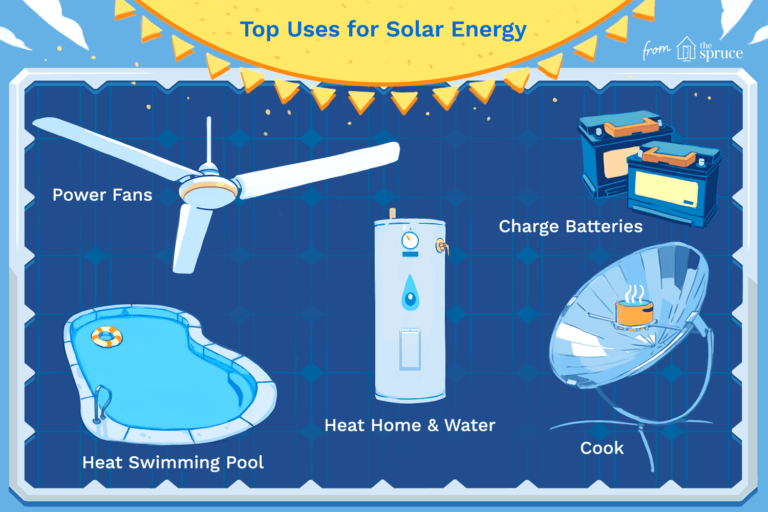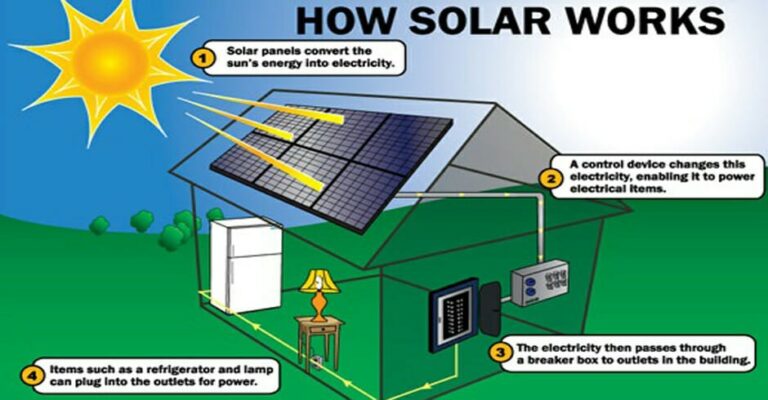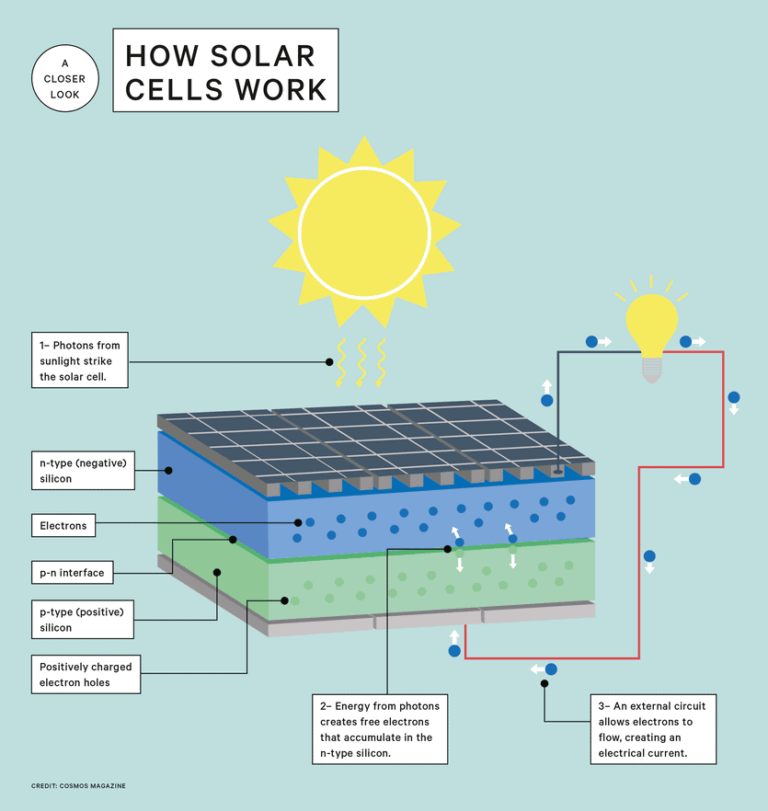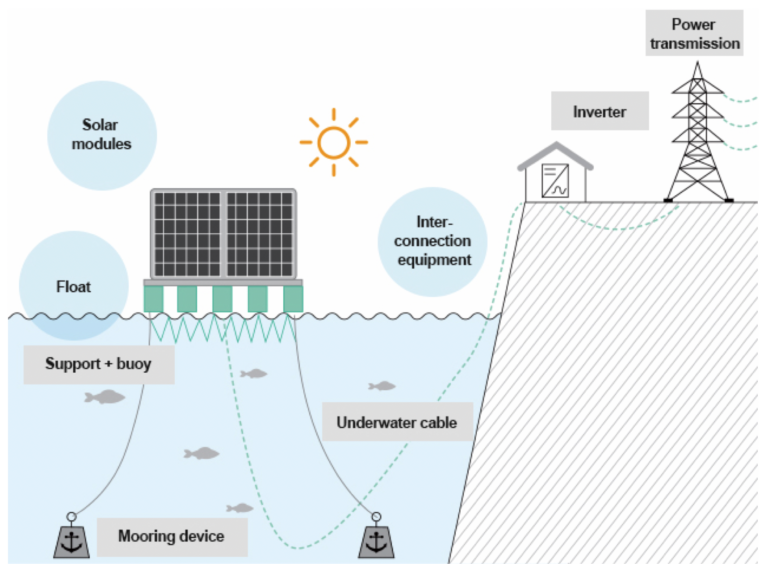How Effective Is Solar Energy?
In today’s world, we are constantly searching for new ways to power our homes, reduce our carbon footprint, and create a sustainable future. That’s where solar energy comes in. How effective is solar energy, you ask? Well, let’s dive in and explore the incredible power of the sun and how it can be harnessed to transform our lives.
When it comes to renewable energy sources, solar energy takes the center stage. Harnessing the power of the sun, solar energy offers an abundant and inexhaustible source of electricity. Plus, it’s environmentally friendly, helping us reduce our dependence on fossil fuels and combat climate change. So, how effective is solar energy in reality? Get ready to be amazed as we uncover the immense potential of going solar.
Imagine a world where we can generate our own electricity, save money on utility bills, and contribute to a greener planet – all thanks to solar energy. In this article, we will delve into the various ways solar energy is being used and its effectiveness in powering homes, businesses, and even entire cities. So buckle up and get ready for a sunny adventure as we explore the wonders of solar energy!

How Effective is Solar Energy? Exploring the Power of the Sun
Solar energy has become an increasingly popular topic in the world of renewable energy. It harnesses the power of the sun to generate electricity and heat, providing a clean and sustainable alternative to traditional forms of energy. But just how effective is solar energy? In this article, we will delve into the various aspects of solar energy and explore its efficacy in terms of efficiency, cost-effectiveness, environmental impact, and more. By the end, you will have a comprehensive understanding of why solar energy is a viable and effective solution for our energy needs.
The Efficiency of Solar Energy
Solar energy is highly efficient, with solar panels converting sunlight into electricity at an impressive rate. The efficiency of solar panels has improved significantly over the years, making them more effective in generating power. Modern solar panels can convert around 15-20% of the sun’s energy into usable electricity. However, there are some limitations to consider. Factors such as geographic location, weather conditions, and shading can affect the efficiency of solar panels. Additionally, the efficiency drops slightly over time due to panel degradation. Despite these limitations, solar energy remains a highly efficient and effective source of power.
Solar energy is a cost-effective solution compared to traditional sources of energy. While the initial installation cost may be higher, solar panels have a long lifespan and require minimal maintenance. Once the system is up and running, the energy generated is essentially free. Moreover, solar energy can help homeowners save money on their utility bills by reducing or eliminating the need to purchase electricity from the grid. In some cases, excess energy produced by solar panels can be sold back to the grid, allowing homeowners to earn credits or receive payment for the energy they generate. Overall, solar energy offers long-term cost savings and a strong return on investment.
The Environmental Impact of Solar Energy
One of the most significant advantages of solar energy is its minimal environmental impact. Unlike fossil fuels, solar energy does not produce harmful greenhouse gas emissions or air pollutants. By using solar energy, we can reduce our carbon footprint and combat climate change. Solar energy also reduces our dependence on finite resources, such as coal, oil, and natural gas, which are not only harmful to the environment but also subject to price fluctuations. Additionally, solar panels have a relatively low embodied energy, meaning they require minimal energy to manufacture compared to their lifespan and the energy they produce.
Solar energy is a versatile and adaptable source of power. It can be harnessed for various applications, including residential, commercial, and industrial use. Solar panels can be installed on rooftops, in fields, or even on water bodies, maximizing the utilization of available space. This flexibility makes solar energy a viable option for both small-scale and large-scale installations. Furthermore, advancements in technology have made solar energy more accessible in remote areas where traditional electricity infrastructure may be challenging to implement. With the ability to generate power wherever the sun shines, solar energy provides an effective solution for meeting the energy needs of various communities.
The Benefits of Solar Energy for Individuals and the Environment
Solar Energy vs. Fossil Fuels: A Clean and Sustainable Alternative
Solar energy offers numerous advantages over fossil fuels. When comparing the two, solar energy comes out on top for its clean and sustainable nature. Fossil fuels release harmful emissions when burned, contributing to air pollution, global warming, and climate change. Solar energy, on the other hand, generates electricity without any emissions, helping to reduce our carbon footprint. By transitioning from fossil fuels to solar energy, we can protect the environment and create a cleaner and healthier future for generations to come.
Solar Energy in Action: Real-Life Applications and Success Stories
Solar energy has proven its effectiveness through various real-life applications and success stories. Governments, organizations, and individuals worldwide have embraced solar energy to power homes, businesses, and even entire communities. For example, the Rewa Ultra Mega Solar Park in India is one of the largest solar power plants in the world, with a capacity of 750 MW. In California, the city of Lancaster has made significant strides in solar energy adoption, aiming to become the first net-zero city in the United States. These success stories demonstrate the potential and effectiveness of solar energy in meeting our ever-growing energy demands.
Tips for Maximizing the Effectiveness of Solar Energy
To maximize the effectiveness of solar energy, there are several tips to keep in mind. First, it is essential to ensure proper installation and regular maintenance of solar panels. This includes cleaning the panels to remove dust and debris, checking for any damage or shading, and monitoring the performance of the system. Additionally, optimizing the positioning and orientation of solar panels can significantly impact their efficiency. Placing panels in locations with maximum sunlight exposure and avoiding shading from nearby objects or buildings is crucial. Finally, being mindful of energy consumption habits and adopting energy-efficient practices can help optimize the utilization of solar energy.
The Future of Solar Energy: Advancements and Innovations
The Evolution of Solar Technology: From Photovoltaic Cells to Solar Paint
Solar technology has come a long way since the invention of the photovoltaic cell in the 1950s. Advancements continue to be made, driving the efficiency and effectiveness of solar energy. Researchers are exploring new materials and concepts to enhance solar panel performance, such as perovskite solar cells and transparent solar panels. Additionally, innovations like solar paint, which can turn any surface into a solar panel, hold great potential for expanding the reach and versatility of solar energy. As technology continues to evolve, solar energy is poised to become an even more effective and widespread solution for our energy needs.
Solar Energy in Developing Countries: Empowering Communities and Alleviating Energy Poverty
Solar energy plays a vital role in developing countries, where access to electricity may be limited or unreliable. By harnessing solar energy, these communities can gain access to clean and affordable power, improving their quality of life and driving economic growth. Solar-powered microgrids and off-grid solar systems are used to bring electricity to remote areas, powering homes, schools, and healthcare facilities. The effectiveness of solar energy in empowering communities and alleviating energy poverty is evident, as it provides a reliable and sustainable source of power, even in the most challenging environments.
The Importance of Solar Energy Education and Advocacy
To fully realize the potential of solar energy, education and advocacy play a crucial role. Educating individuals and communities about solar energy benefits, installation processes, and financing options is essential for widespread adoption. Additionally, advocating for supportive policies and incentives can help remove barriers and make solar energy more accessible and affordable. By raising awareness and promoting solar energy, we can drive its effectiveness and ensure its place as a leading solution in the transition to a clean energy future.
In summary, solar energy is highly effective and offers numerous benefits in terms of efficiency, cost-effectiveness, environmental impact, and versatility. It provides a clean and sustainable alternative to fossil fuels, reducing emissions and combating climate change. With advancements in technology, solar energy is becoming increasingly accessible and widely adopted. By embracing solar energy and maximizing its effectiveness through proper installation, maintenance, and energy-conscious practices, we can harness the power of the sun to meet our energy needs while safeguarding our planet for future generations.
Key Takeaways: How Effective is Solar Energy?
- Solar energy is a highly effective form of renewable energy.
- It can reduce your carbon footprint and help combat climate change.
- Solar panels can be installed on rooftops or in large solar farms.
- Solar energy is reliable and can provide electricity even on cloudy days.
- Investing in solar energy can save money on electricity bills in the long run.
Frequently Asked Questions
Welcome to our Frequently Asked Questions section on solar energy! Here, we’ll address some common queries about the effectiveness of solar energy and its impact on our lives. Read on to find out more!
How does solar energy work?
Solar energy works by harnessing the power of the sun to generate electricity. Solar panels, made up of photovoltaic (PV) cells, capture sunlight and convert it into usable electrical energy. These cells contain semiconductors that absorb photons from the sun, releasing electrons in the process. This creates a flow of electricity, which can be stored in batteries or used immediately to power homes, businesses, and other electrical devices. So, in simple terms, solar panels convert sunlight into electricity that we can use.
Solar energy is clean, renewable, and abundant. By utilizing this clean energy source, we can reduce our dependence on fossil fuels, decrease carbon emissions, and contribute to a more sustainable future.
What are the benefits of using solar energy?
There are numerous benefits to using solar energy. Firstly, solar power is a clean and renewable source of energy. Unlike fossil fuels, solar energy production does not release harmful greenhouse gases into the atmosphere, which helps combat climate change. Additionally, solar panels require minimal maintenance and have a lifespan of up to 25 years, making them a cost-effective option in the long run.
Moreover, solar energy can reduce electricity bills significantly. By generating your own electricity, you can decrease or even eliminate your reliance on the grid. Additionally, solar panels can increase the value of your property, making it a worthwhile investment. Lastly, solar energy systems are highly versatile and can be installed in a variety of locations, including rural areas without access to conventional power grids.
Are solar panels effective in all regions?
Solar panels are effective in a wide range of regions, but their performance can vary depending on factors such as sunlight availability and climate. Solar panels work best in areas that receive abundant sunshine, where they can capture maximum sunlight and generate more electricity. However, even in regions with less sunlight, solar panels can still be effective.
Advancements in solar technology have also made it possible for panels to generate electricity on cloudy days or in low-light conditions. Additionally, solar panels can still produce power during winter months, although their output may be slightly reduced. So, while solar panels are most effective in regions with ample sunlight, they can still be a valuable energy source in less sunny areas.
Can solar energy be used at night or during rainy days?
Solar energy is primarily generated during daylight hours when the sun is shining. However, it is still possible to use solar energy at night or during rainy days. Solar energy systems can be equipped with batteries to store excess electricity generated during the day for use during nighttime or cloudy periods. These batteries act as a backup power source and ensure a continuous supply of electricity even when there is no sunlight.
In areas where using batteries may not be feasible, solar-powered systems can be integrated with the traditional power grid. This allows users to consume electricity from the grid when required and export excess solar energy back to the grid when their system produces more electricity than they need. This way, solar energy users can still benefit from clean energy, even when the sun isn’t shining.
What is the environmental impact of solar energy?
Solar energy has a significantly lower environmental impact compared to conventional energy sources. Solar power production does not produce greenhouse gas emissions or air pollutants, helping reduce the negative effects of climate change and air pollution. Additionally, solar energy helps conserve water resources as it does not require large amounts of water for its operation, unlike fossil fuel power plants.
Furthermore, installing solar panels reduces the demand for electricity from the grid, which is usually generated by burning fossil fuels. By transitioning to solar energy, we can decrease our dependence on non-renewable resources and contribute to a cleaner and more sustainable environment for future generations.
How do solar panels work? – Richard Komp
Summary
Solar energy is a great alternative to fossil fuels because it is clean, renewable, and abundant. It reduces greenhouse gas emissions and helps combat climate change. Solar panels are becoming more affordable and efficient, making solar energy accessible to more people. However, there are some challenges with solar energy, such as the need for sunlight and the need for space to install solar panels. Overall, solar energy is an effective and sustainable solution for our energy needs.
It is important to continue investing in solar energy research and development to improve its efficiency and storage capabilities. With advancements in technology, solar energy has the potential to become the primary source of electricity worldwide. By utilizing solar power, we can protect the environment, save money, and create a more sustainable future for ourselves and future generations. So let’s embrace solar energy and harness the power of the sun!




